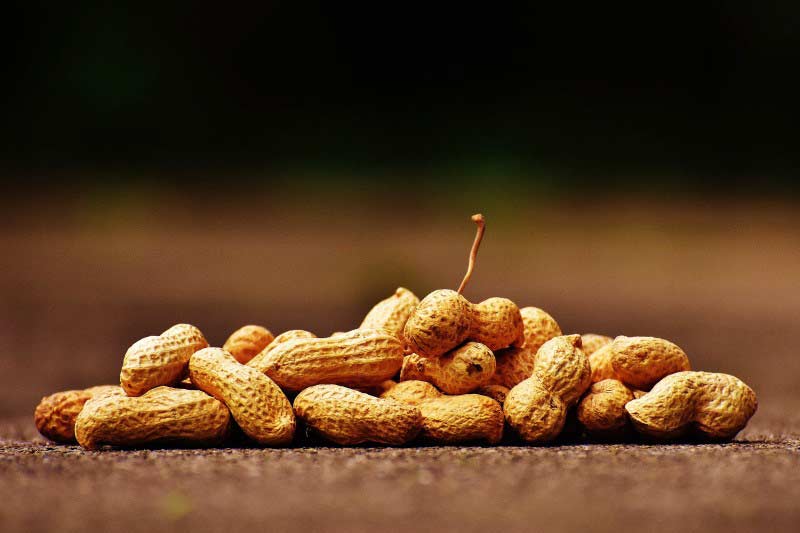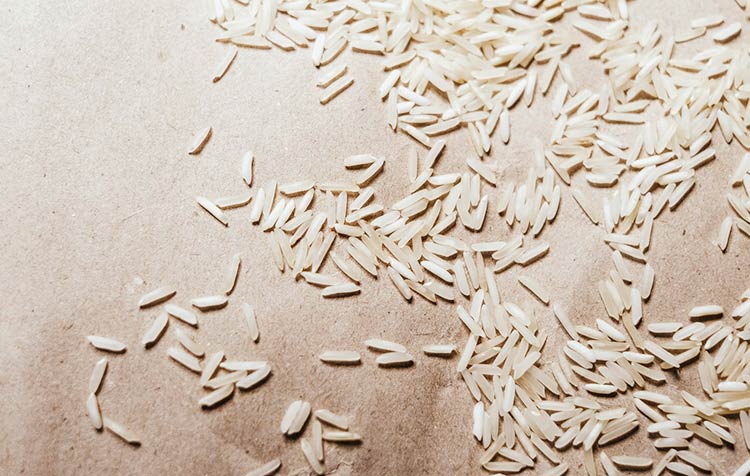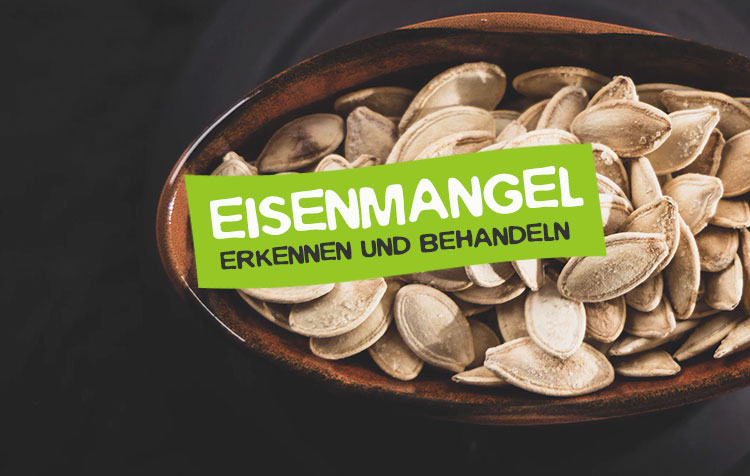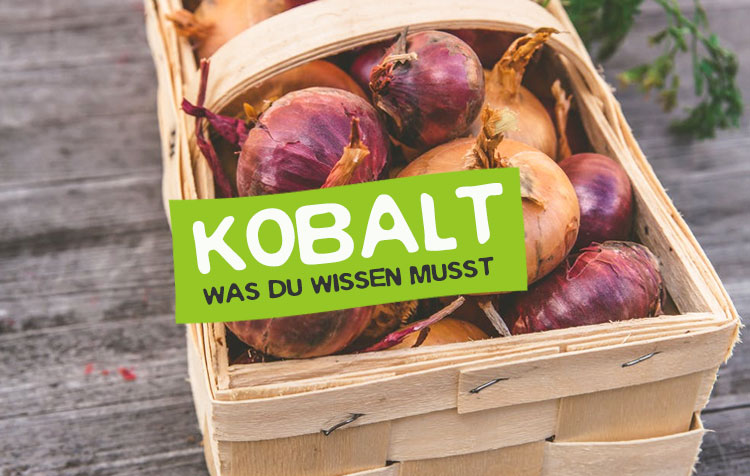You want to learn about niacin? Then you've come to the right place! Because I now give you the most important information about the water-soluble vitamin to the hand, which is also Vitamin B3 or Nicotinic acid is called.
We start with a fact sheet, then move on to intake, recommended intake, function, risk of toxicity and deficiency, to the best sources and supplements. Finally, I answer the question of what vegans should consider regarding niacin supply.
Here is in advance a short Table of contents for you:
Notice: This article is not a substitute for medical advice, but merely provides general information about niacin. Please consult your doctor if you feel unwell or want to prevent health problems with medical care.
Niacin PROFILE AT A GLANCE
Assignment: Water soluble vitamins
Synonyms: Nicotinic acid, vitamin B3, vitamin PP, PP factor
Important for: Energy metabolism, metabolism of carbohydrates, amino acids and fatty acids, cell division and immune response1
Daily requirement: 11-16 mg/day from the age of 19.2,3,4
Overdose: possible, different limit values1,3,5
Deficiency symptoms: including loss of sleep and appetite, pellagra (skin changes, gastrointestinal complaints, neurological disorders)
Food: Yeast flakes, peanuts, coffee, mushrooms, whole grain products
Nutritional supplement: mostly as vitamin B complex
Absorb vitamin B3 properly
Niacin belongs to the vitamin B complex and thus to the Water soluble vitamins. In plants, the vitamin occurs mainly as Nicotinic acid while it is present in meat as Nicotinamide or its coenzyme form NADH is stored.
The Bioavailability varies between 25 and 75 percent, depending on the source and form of the vitamin. The Preparation losses are rather low at 10 to 35 percent because vitamin B3 is heat-, light- and oxidation-stable.
Preparation Tip: Since the vitamin is water-soluble, it passes into the water during cooking. Therefore, you should continue to use the cooking water, for example for a soup. In addition, heating cereal products increases their bioavailability.
How much vitamin B3 do you need?

Niacin has, just like Vitamin B1 and vitamin B5, have a major influence on energy metabolism. Therefore, supplement recommendations are often set in relation to calorie intake. Accordingly, the European Food Safety Authority (EFSA) recommended 6.6 mg per 1,000 calories. With an average intake of 2,000 calories, the daily requirement according to EFSA is therefore 13.2 mg of niacin.4 The Office of Dietary Supplements on the other hand, makes a general recommendation of 14-16 mg of niacin per day.3
In addition you can find here the recommendations of the German Society for Nutrition (DGE), which also includes the recommended intake of vitamin B3 for Children and teenagers contain2:
| Age | male | female |
| 1 to under 4 years | 8 | 8 |
| 4 to under 7 years | 9 | 9 |
| 7 to under 10 years | 11 | 10 |
| 10 to under 13 years | 13 | 11 |
| 13 to under 15 years | 15 | 13 |
| 15 to under 19 years | 17 | 13 |
| 19 to under 25 years | 16 | 13 |
| 25 to under 51 years | 15 | 12 |
| 51 to under 65 years | 15 | 11 |
| 65 years and older | 14 | 11 |
From the aforementioned nutrition societies comes a recommendation to increase niacin intake for pregnant and breastfeeding women off. Depending on the nutrition society, the reference value in pregnancy and lactation is between 14 and 18 mg of niacin per day.2,3,4
Notice: In most cases, reference values of nutrition societies are based on the avoidance of deficiency symptoms instead of aiming for holistic, optimal health. Consequently, it may make sense to deviate from the recommendations under certain circumstances.
What does the body need niacin for?
Vitamin B3 has a great influence on the Energy metabolism and thus contributes to energy production. Furthermore it is a Coenzymewhich is required in the metabolism of carbohydrates, fatty acids and amino acids.
Besides, the nutrient is also required for a functioning Cell division, myelin formation of the nerve tracts, as well as a natural Immune response needed. Presumably, the valuable vitamin also promotes the Insulin secretion in the pancreas and the health of the cardiovascular system.6
The Functions of vitamin B3 in the overview:
- Energy metabolism
- Metabolism of carbohydrates, fatty and amino acids
- Cell division
- Myelin formation in the nervous system
- Immune function
- Insulin secretion
- Maintaining the health of the cardiovascular system
Is vitamin B3 toxic?
When it comes to the toxicity of vitamin B3, some health societies distinguish between the both forms nicotinic acid and nicotinamide. According to DGE and EFSA, the maximum intake for nicotinic acid is 10 mg per day, while the limit for nicotinamide is much higher at 900 mg per day.1,5
The Office of Dietary Supplements however, issues a general intake limit of 35 mg of niacin per day, which does not differentiate between the two forms.3 With a normal, balanced diet, you don't have to worry about taking in too much vitamin B3.
How likely is a niacin deficiency?
In 2012, the DGE issued a statement on the supply status of the German population, calling Germany "not a vitamin deficient country" and praising the supply of nutrients.7 Even though I consider this statement to be somewhat overoptimistic for many nutrients, it is quite true for niacin. Because the National Consumption Study IIone of the largest German nutrition studies, concluded that only 1 percent of men and 2 percent of women consume too little vitamin B3.8
The first Symptoms of deficiencysuch as loss of appetite and insomnia are quite unspecific. In the case of a chronic deficiency it then comes to Pellagra-disease that can lead to skin lesions, diarrhea, vomiting, growth disorders and neurological disorders.
Risk groups for deficiency: Vitamin B3 deficiency usually results from malnutrition or undernutrition. Other factors include chronic diarrheal diseases, cirrhosis of the liver, Hartnup's syndrome, alcoholism, and an insufficient intake of Vitamin B2, B6 and Iron.1,3
Which foods contain a lot of vitamin B3?

So which foods are good sources of niacin? Basically you can find in Nuts, coffee, whole grains, mushrooms and some fish. good amounts of niacin. By the way, one cup of coffee contains 1 to 2 mg of niacin.
Since I recommend a plant-based diet for ethical, environmental and health reasons, the following list contains mainly plant-based sources of niacin. However, to be as comprehensive as possible, a few animal sources also appear.
Especially good sources of niacin are:
- Yeast flakes (26 mg per 100 gram)
- Edible bran (17.7 mg per 100 gram)
- Peanuts (15.3 mg per 100 gram)
- Peanut butter (13.7 mg per 100 gram)
- Chicken liver (11.6 mg per 100 gram)
- Buckwheat flour (6.2 mg per 100 gram)
- Natural rice (5.2 mg per 100 gram)
- Sesame (5 mg per 100 gram)
Many Edible mushrooms, such as chanterelles, oyster mushrooms, porcini mushrooms or mushrooms have a vitamin B3 content of 4 to 6 mg per 100 grams and are therefore well suited to cover niacin requirements.
What should vegans look for in their niacin supply?
In principle, the human body can utilize the B vitamin from animal foods better than from plant sources. In addition, the average German population covers its needs mainly through meat, coffee and bread.8 However, all this is not a problem, because even with a vegan diet you can get enough niacin.
So if you are eating a purely plant-based diet, you should pay attention to Mushrooms, whole grains and nuts - especially peanuts - into your diet. Since there are many good plant sources of niacin, vitamin B3 is, according to the statement of the DGE on vegan nutrition. not on the list of potentially critical nutrients.9
Is it worth supplementing niacin?
Supplementation of niacin is often not necessary, as most people are adequately supplied with vitamin B3.3,7,8 However, should you become one of the above Risk groups it makes sense to check your niacin status regularly. Then, to determine your supply status, a Test of your Blood serum levels meaningful.10
Because B vitamins are important to the body and often work closely together, it can be useful to supplement a vitamin B complex. A good one, vegan vitamin B complex in Capsules you get here*.
Niacin FAQ: The most frequently asked questions
Is niacin stored in the body?
The body can store low amounts of niacin that are sufficient for about two to six weeks.
What foods are rich in niacin?
Particularly good suppliers of vitamin B3 are edible bran, peanuts, coffee, brown rice, mushrooms.
What are the functions of niacin in the body?
Niacin is used for energy production, promotes the metabolism of macronutrients, cell division, the immune system, the secretion of insulin, and the formation of myelin around nerve fibers. It is also a factor in maintaining the health of the cardiovascular system.
Is nicotinic acid niacin?
Nicotinic acid is a form of niacin. Other forms are nicotinamide or NADH.
What happens with a B3 deficiency?
B3 deficiency is a rarity in our latitudes. It leads to B3 deficiency disease Pellagra, which manifests itself in disorders of the skin and nervous system, as well as gastrointestinal problems.
Basically Well positioned with vitamin B3
So because of the good average supply situation, niacin is not a vitamin you need to worry too much about. Nevertheless, it's good to be aware of good niacin sources like Yeast flakes, peanuts, mushrooms and whole grain products into your nutrition plan.
For a holistic approach to health, in addition to eating a balanced diet, you should take other measures to Optimize your health use. You can find inspiration for this in the articles on cold shower, movement at the fresh air or Meditation. You can also get a good overview in the article More energy in everyday life.
If I have left any question about niacin unanswered, feel free to ask me using the comments section!
All the best,

P.S.: In the Nutrient database you will find many more detailed articles about nutrients. If you are interested in sustainability, you will find the contribution Shape nutrition sustainably perhaps exciting. Have fun!
References:
1 Deutsche Gesellschaft für Ernährung e. V.: Ausgewählte Fragen und Antworten zu Niacin. https://www.dge.de/wissenschaft/weitere-publikationen/faqs/niacin/#metab. [24.08.2021]
2 German Nutrition Society: Niacin, https://www.dge.de/wissenschaft/referenzwerte/niacin/?L=0. [08/24/2021]
3 National Institutes of Health. Office of Dietary Supplements: Niacin. Fact Sheet for Health Professionals, https://ods.od.nih.gov/factsheets/niacin-healthprofessional/. [24.08.2021]
4 European Food Safety Authority: Scientific Opinion on Dietary reference values for niacin, https://efsa.onlinelibrary.wiley.com/doi/pdf/10.2903/j.efsa.2014.3759. [24.08.2021]
5 European Food Safety Authority: Tolerable Upper Intake Levels for Vitamins and Minerals, https://www.efsa.europa.eu/sites/default/files/efsa_rep/blobserver_assets/ndatolerableuil.pdf. [24.08.2021]
6 Zentrum der Gesundheit: Vitamin B3 zum Schutz vor Hautkrebs und mehr, https://www.zentrum-der-gesundheit.de/ernaehrung/vitamine/b-vitamine/vitamin-b3. [24.08.2021]
7 A. Bechthold, V. Albrecht, E. Leschik-Bonnet, H. Heseker (2012): DGE Opinion: Assessment of vitamin supply in Germany. In: Ernährungsumschau 59 (2012), pp. 324-336. Online: https://t1p.de/5c5r. [24.08.21]
8 Max Rubner Institute. J. Möhring, H. F. Erbersdobler (2008). National consumption study II - results report part 2. In: Lebensmittel-Warenkunde Für Einsteiger, (Springer), pp. 121-146. Online: https://www.mri.bund.de/de/institute/ernaehrungsverhalten/forschungsprojekte/nvsii/erg-verzehr-naehrstoffe. [24.08.2021]
9 Deutsche Gesellschaft für Ernährung e. V.: Supplement to the position of the German Nutrition Society with regard to population groups with special nutritional needs, https://www.dge.de/wissenschaft/weitere-publikationen/dge-position/vegane-ernaehrung/?L=0 [Aug. 24, 2021].
10 Center of health: determine vitamin deficiency: the diagnosis, https://t1p.de/8drh. [24.08.2021]





